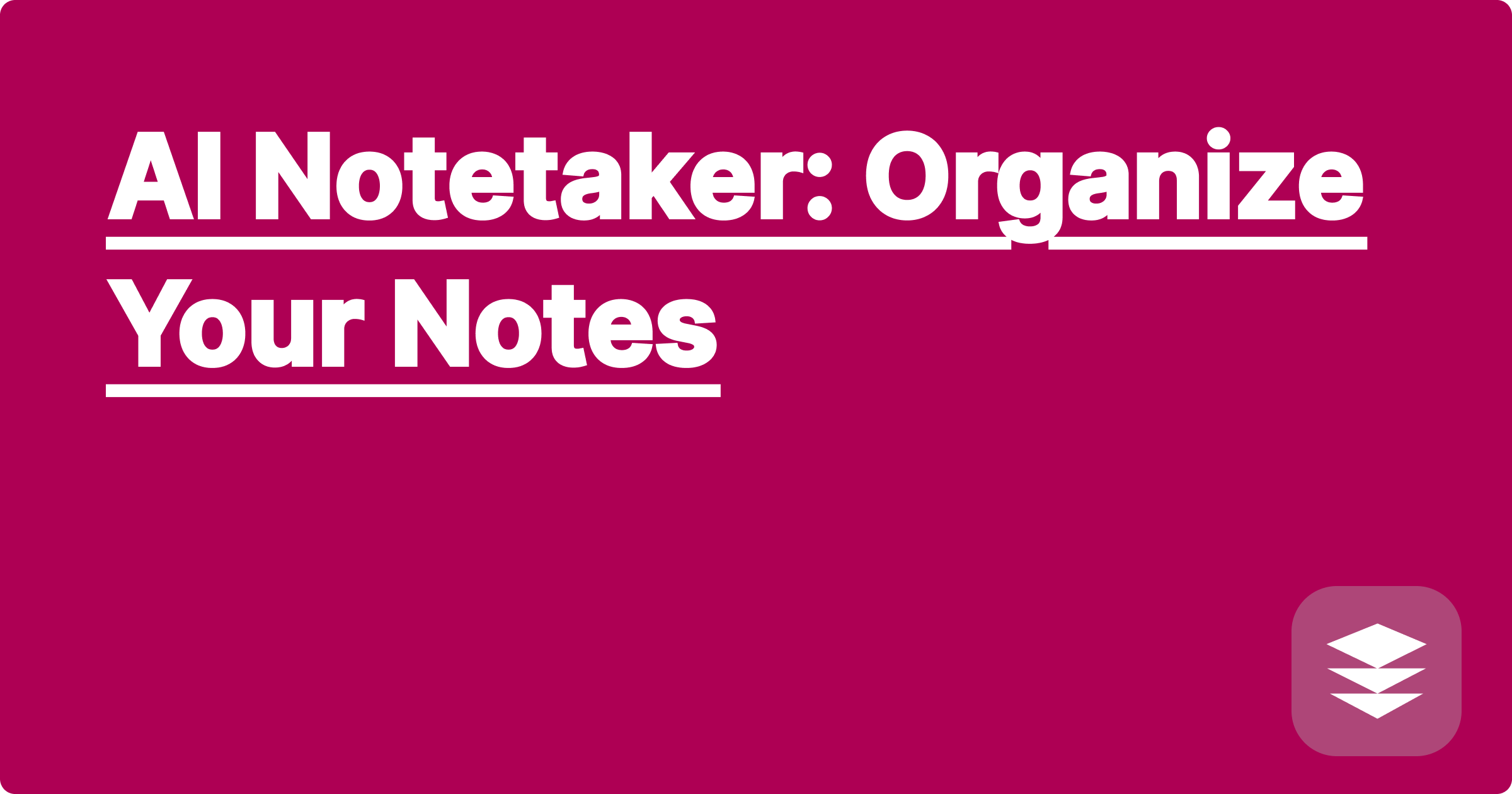
STEM fields are notorious for their demanding coursework, complex concepts, and the sheer volume of information students and researchers must process. Managing notes effectively is crucial for success, but traditional methods often fall short. Sifting through handwritten scribbles or disorganized digital files can be incredibly time-consuming and inefficient. This is where the power of Artificial Intelligence comes into play. AI-powered note-taking tools offer a transformative solution, enabling STEM students and researchers to organize, synthesize, and access their notes with unprecedented ease and efficiency.
For STEM students and researchers, effective note-taking isn't just about recording information; it's about building a foundation for understanding complex concepts, conducting thorough research, and ultimately contributing to the advancement of their fields. The ability to quickly locate specific information, identify connections between different concepts, and synthesize knowledge from various sources is essential for academic success and impactful research. AI notetakers empower STEM professionals to achieve these goals by transforming the note-taking process from a passive exercise into an active learning experience.
STEM students face a unique challenge when it comes to note-taking. The information they encounter is often dense, technical, and interconnected. Lectures, textbooks, and research papers are packed with formulas, diagrams, and specialized terminology. Traditional note-taking methods, like linear note-taking in a notebook or typing on a laptop, struggle to capture the multi-dimensional nature of STEM material. Furthermore, these methods make it difficult to search, organize, and connect information across different sources. This can lead to frustration, wasted time, and ultimately, a less comprehensive understanding of the subject matter. The problem is further compounded by the fast-paced nature of STEM courses and the increasing pressure on researchers to process and analyze vast amounts of data.
AI-powered tools like ChatGPT, Claude, and Wolfram Alpha offer a powerful solution to the challenges of STEM note-taking. These tools can transcribe lectures, summarize complex information, generate practice questions, and even connect concepts across different sources. For example, a student could upload their handwritten notes to an AI notetaker, which would then convert them into searchable text. They could then use the tool to generate summaries of key concepts, create flashcards for studying, or even ask the AI to explain a difficult formula. Researchers can utilize these tools to analyze large datasets, extract key insights from research papers, and even generate reports.
First, choose an AI tool that suits your needs. ChatGPT and Claude are excellent for summarizing text and generating practice questions. Wolfram Alpha excels at handling mathematical and scientific computations. Next, input your notes into the chosen tool. This could involve uploading handwritten notes, copying and pasting text, or even recording a lecture. Then, instruct the AI to perform the desired task. For instance, you might ask it to summarize a complex research paper or generate a list of key takeaways from a lecture. Finally, review the output and refine it as needed. You can edit the summaries, add your own notes, or ask the AI to clarify certain points.
Consider a student taking a course in thermodynamics. They could use ChatGPT to summarize the key concepts from each lecture and then use those summaries to generate practice questions. For example, they could input notes on the Carnot cycle into ChatGPT and ask it to “summarize the key principles of the Carnot cycle.” The AI would then generate a concise summary of the cycle's stages, efficiency, and limitations. The student could further prompt the AI to "create three practice problems related to Carnot cycle efficiency calculations.” Similarly, a researcher studying the properties of a new material could use Wolfram Alpha to perform complex calculations based on experimental data. They could input the chemical formula of the material and ask Wolfram Alpha to calculate its molar mass, density, or other relevant properties. For example, entering "molar mass of C6H12O6" into Wolfram Alpha will instantly provide the molar mass of glucose.
To maximize the benefits of AI notetakers, develop a consistent workflow. Dedicate time each day or week to process your notes using the AI tool. Don't simply rely on the AI's output; actively engage with the material by adding your own insights, questions, and connections. Experiment with different AI tools and features to find what works best for you. Some tools might be better suited for certain subjects or tasks. Use the AI to connect concepts across different courses and research areas. This will help you develop a deeper and more integrated understanding of the material. Finally, remember that AI is a tool, not a replacement for your own critical thinking and learning. Use it to enhance your learning process, not to replace it.
To effectively integrate AI into your STEM studies and research, begin by exploring the available AI note-taking tools and experimenting with their features. Identify the tools that best align with your learning style and research needs. Develop a consistent routine for processing your notes using these tools, ensuring you actively engage with the material and add your own insights. Don't hesitate to explore advanced features like cross-referencing and concept linking to build a deeper understanding of complex topics. Remember that AI is a powerful tool to enhance your learning and research capabilities, but it's most effective when combined with your own critical thinking and active learning strategies.
AI for Chemistry: Ace Your Tests
AI Statistics Helper: Data Mastery
AI for CAD: Design Optimization
AI Essay Writer: STEM Research